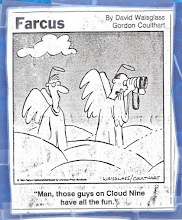"Outside Port Huron, Mich., where a dense thicket meets the lapping shores of Lake Huron, the careful explorer will come across rusty and timeworn pipes, and a few collapsed foundations, the last traces of the labor camp where 60 young people finalized the Port Huron Statement, the seminal “agenda for a generation,” in 1962. . .
It was to be a short manifesto, a recruiting tool, perhaps five or 10 single-spaced pages. Instead it mushroomed into a 50-page single-spaced draft prepared for the Port Huron convention in May 1962. That version was debated and rewritten, section by section, by those who attended the five-day Port Huron meeting and returned to me for final polishing. Twenty thousand copies were mimeographed and sold for 35 cents each.
The vision grew from a concrete generational experience. Rarely if ever had students thought of themselves as a force in history or, as we phrased it, an “agency of social change.” We were rebelling against the experience of apathy, not against a single specific oppression. We were moved by the heroic example of black youth in the South, whose rebellion taught us the fundamental importance of race. We could not vote ourselves, and were treated legally as wards under our universities’ paternal care, but as young men we could be conscripted to fight in places we dimly understood, like Vietnam and Laos. The nation’s priorities were frozen by the Cold War: a permanent nuclear arms race benefiting what President Eisenhower had called “the military-industrial complex,” whose appetite absorbed the resources that we believed were necessary to address the crises of civil rights and poverty, or what John Kenneth Galbraith termed “squalor in the midst of affluence.”
Apathy, we came to suspect, was what the administrators and power technicians actually desired. Apathy was not our fault, not an accident, but the result of social engineering by those who ran the institutions that taught us, employed us, entertained us, drafted us, bored us, controlled us, wanted us to accept the absolute impossibility of another way of being. . . we began with the realization that we had to relate to, not denounce, the everyday lives of students and communities around us in order to replicate the journey out of apathy on a massive scale.
Check out the book at Barnes & Noble. The entire book is also posted on Google Books. Truthdig posted the entire preface and introduction which you should check out at the very least. It is excellent reading.We chose to put “values” forward as the first priority in challenging the conditions of apathy and forging a new politics. Embracing values meant making choices as morally autonomous human beings against a world that advertised in every possible way that there were no choices, that the present was just a warm-up for the future."
Fight apathy!!! Keep activist idealism alive!!!!


No comments:
Post a Comment